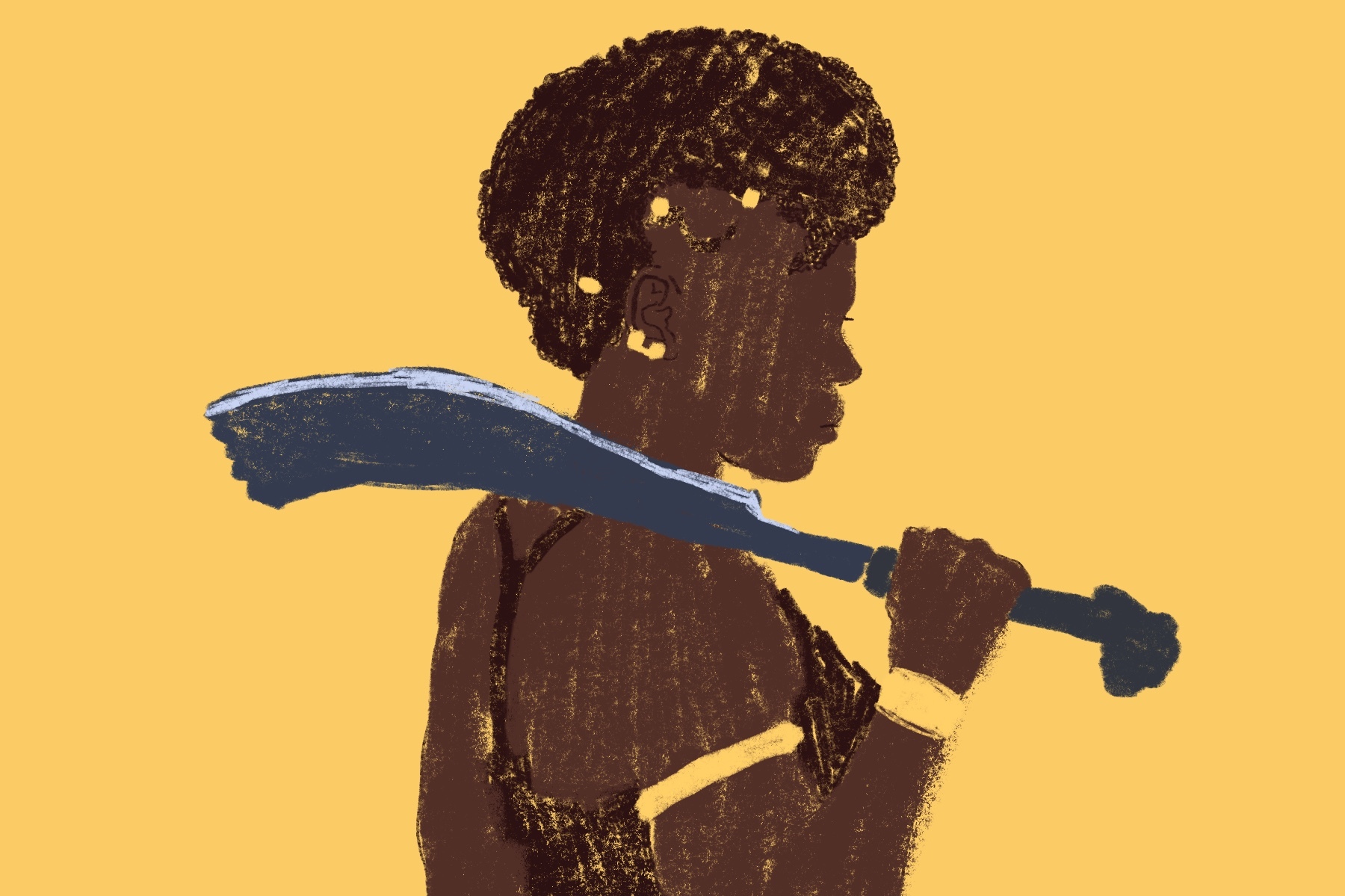Though we often think of our mass media purely as vessels of entertainment and fantasy, it goes without saying that every now and then, there comes a movie or TV show that fundamentally changes people’s lived experiences. Whether or not you think these stories are “good” is irrelevant to the fact that they have opened doors for people in media industries and fundamentally changed the cultural landscape for the better. Think of the impact that “Will & Grace” had on LGBTQ+ representation or that “Crazy Rich Asians” had on the Asian American community. Movies and TV series are not powerless objects — sometimes, they push us toward progress in ways that our political leaders and activists are unable to do.
Perhaps no one knows this better than critically acclaimed actress Viola Davis. As the only African American who has achieved the Triple Crown of Acting, Davis has been vocal about the racism she has personally experienced in Hollywood as well as the deep frustration she has long felt about the lack of quality representation of the Black community — and particularly of Black women — on screen.
Despite the critical success of movies like “Moonlight” and “Hidden Figures,” Hollywood still has a long road to travel not just in terms of casting Black actors in big projects, but also in bringing in Black writers, directors and producers to lead these projects. The early financial and critical success of Davis’ new film, “The Woman King,” points to the promising future for Black filmmakers that Davis has worked so hard to realize.
“The Woman King,” directed by Gina Prince-Bythewood (“The Old Guard”), is a historical epic film about the Agojie, the all-female warrior regiment that defended the West African kingdom of Dahomey from the 1600s up to the kingdom’s collapse in the early 1900s. Named the “Dahomey Amazons” by Europeans in reference to the Amazons of Greek mythology, the Agojie were fiercely disciplined and revered by the people of Dahomey.
The film takes place in 1823, during Dahomey’s golden age under the rule of King Ghezo, played by John Boyega. The major conflict revolves around political tensions between Dahomey and the nearby Oyo Empire, during a time when both peoples were involved in the thriving slave trade. The growing presence of Europeans in West Africa looms over these two kingdoms and drives them to compete with even more brutality.
The complex social and political dynamics that mark the time period are, of course, extremely difficult to portray in any piece of modern media. Audiences expect both satisfying entertainment and total accuracy in historical films, two expectations that are nearly impossible to achieve together. But, considering these difficulties, “The Woman King” does an excellent job of celebrating these warriors while still discussing the cruel economic system that Dahomey participated in.
If you look at the comments under a trailer for “The Woman King” on YouTube, you’ll find that most of them are about Dahomey’s extensive participation in the slave trade during the 1800s and how the movie obviously isn’t addressing this (all based on a two-minute trailer — but that’s YouTube for you). You can understand how seeing all these comments might dissuade someone from seeing the film. They dismiss “The Woman King” as a movie riding on the wave of badass women on film and women-led action films, while at the same time obscuring the role these women played in the practice of buying and selling not only other human beings, but human beings who belonged to their own kingdom.
The idea of a movie like that is uncomfortable, and rightly so. But after experiencing the film, it’s impossible to say that it does not address slavery — if anything, slavery is the central focus of the plot outside of the personal relationships between the main characters. It is portrayed as a vicious system that both nations have come to increasingly rely on even as it destroys their cultures and their people.
The European slave trader who engages with Dahomey and Oyo feigns respect for its leaders, but of course, cares only for the “commodities” he can grow rich on. His presence is the film’s way of looking Dahomey’s history with slavery directly in the eye instead of hiding from it, of addressing the evils that they took part in as well as reminding us that this system spread far beyond the boundaries of one kingdom.
General Nanisca, played by Viola Davis, is the seasoned leader of the Agojie and the only character to vocally resist Dahomey’s ongoing participation in the slave trade. Because she is a fictionalized member of the Agojie (historians have very few records of actual members of the regiment), it’s unclear whether her character has any historical basis.
Ultimately, though, what matters is the resistance that Nanisca represents, not the accuracy behind her character — as John Boyega and Viola Davis have pointed out, the film is historical fiction, not a documentary. It’s not extraordinary to suggest that there were real people in Dahomey who opposed, or at the very least, worried about, their kingdom’s role in the slave trade, and Nanisca gives voice to those lost in the current of history.
Beyond her concerns about Dahomey’s future, Nanisca is not just a powerful and dedicated leader, but also a woman with a complicated past and unyielding loyalty to her sisters. More than a few scenes show her unguarded in the baths reserved for the Agojie, tired and wary, maybe, but proud of how far she has come. These scenes might seem like a lull in the action, but more importantly, they give us a deeper sense of this remarkable woman behind the armor.
She shares a few of these moments with the film’s other protagonist, the young Nawi, played by Thuso Mbedu. Nawi is everything Nanisca tries to stamp out of her fellow warriors. She is reckless to the point of dangerous, insubordinate and a chronic rulebreaker. But she also holds many of the qualities that Nanisca has suppressed within herself: an untamed curiosity about the world and a desire for something more than just winning. Their relationship might start off rocky, but it eventually becomes the heart of the film, defined by a deep respect and understanding of one another.
Many reviewers have been focusing on the action and next-level badassery of the female characters in “The Woman King,” which, of course, is absolutely breathtaking to watch, but equally beautiful is the fierce love and loyalty that bonded not only these two women, but all of the Agojie, together. It’s the love between sisters, between mothers and daughters, and it’s what makes these women so awe-inspiring.
“The Woman King” is deeply moving and entertaining, both as an action film and a historical epic. It calls back to the days when historical epics like “The Last of the Mohicans” and “Gladiator” were staples of Hollywood, but ultimately turns the genre to a part of history that American cinema had never touched, not until “Black Panther” took the world by storm in 2017. In fact, the movie might never have been made without the success of “Black Panther.” Davis and other members of the crew behind “The Woman King” have discussed the long fight it took to get the film out there. When asked about how she feels about the movie’s critical success, Davis said:
“It feels right… People talk about the vision of the movie and what they see on screen, but nobody talks about the fight between to get it made… Because at the end of the day, what it’s about is, can Black women lead a global box office? … We’ve known it all along, that we could do it. We’ve known we had a kick-ass script; we’ve known it’s undeniable. And so now the world knows. It feels right.”
It’s this sense of justice that Davis has expressed that makes a film like “The Woman King” so important. Like other films and shows that have broken barriers for minorities in the industry, this is a movie that holds real, tangible significance not merely as a great story, but as a project that is striving for a diversity that Hollywood is only just beginning to embrace. Its success is a triumph for Black creators everywhere and for an industry that is still expanding to include representation for those whose stories have yet to be told.

















